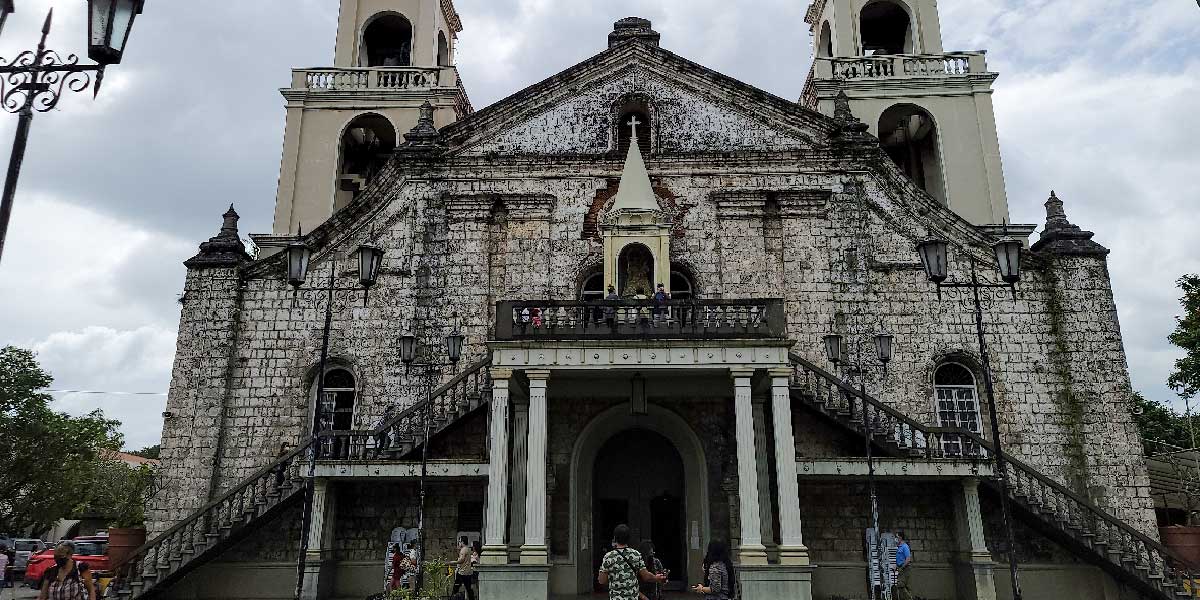 By Modesto P. Sa-onoy
By Modesto P. Sa-onoy
The funeral rites of the Catholic Church as well as other Christian denominations recall the Biblical passage as a reminder to all: ashes to ashes, dust to dust. Indeed, the Bible jogs our memory, “it is appointed unto men once to die, but after this the Judgment (Heb 9:27).
Death is a reality nobody can escape from but while all accept this fact, they purposely forget the “judgment” thereafter and thus live as if there is no God who will render that judgment.
The funeral rites reminding us of our being eventually turned to dust is also included in the Bible. It tells that due to the sin of our original parents, God decreed, “By the sweat of your brows you shall eat bread, till you return to the ground, for out of it you were taken; for you are dust, and to dust you shall return. (Genesis 3:19.)”
These verities of life gained new interest because of many unexpected deaths due to the corona virus disease and the spike in cremation, the preferred means adopted by the government in disposing of the victims of the pandemic. The process quickly turns a body into ashes.
Cremation has been practiced since ancient times and remains so today. For generations, the Catholic Church frowned on cremation, preferring burial under the doctrine that the human body is the temple of the Holy Spirit, and the resurrection of the dead when body and soul are brought together.
In recent years, the Church softened on the issue but lately, the Vatican issued new guidelines because of practices that contravened the doctrine, not the cremation itself but the disposal of the ashes that effectively denies the sanctity of the human body as the temple of God who “breathe a living soul” into clay that gave it life.
Some of the abuses or desecration of the ashes includes flushing it down the toilet or throwing them into the wind and the mountain. Some place a portion into a vial and carry around the neck. There are instances when the ash is divided among friends and relatives or used as fertilizer in flower pots. Environmentalists had their ashes buried under a tree, calling it “human composting”.
Some are weird, like mixing the ashes with gunpowder as propellant for the bullet. In England a county plans to liquefy the human remains for easy disposal.
The new Vatican guidelines forbid these practices because even if the body had been turned into ashes, it remains blessed and should be kept in a sacred place, the campo santo for the burials, or church for the ashes. There are now many columbaria in the Philippines either standing alone or part of a cemetery. An urn where the ashes are stored could be buried or deposited in a cemetery or columbarium.
In some cases the bones are exhumed and placed in an ossuary or burned into ashes and kept in the columbarium. Either way, the remains are in a campo santo.
The recent increased demand for cremation had raised its cost. It is cheaper than burial but now it can cost more than P30,000. An elegant cremation (whatever that is) can cost over a million.
There are fears that this trending high cost of burials and cremation, can produce “death debtor” for the poor who cannot afford burial much less cremation.
Several cities in Metro Manila is solving this problem. They will shoulder the cost of the cremation of victims of the virus but the report did not say where the ashes are to be deposited.
Under the protocol for Covid-19 victims, the deceased is immediately cremated. This is painful for the families who are denied the traditional death rites in favor of hurried, impersonal cremations and restrictions that forbid them a last look at their loved ones. It is no consolation that they are spared the cost of the wake.
If the ashes were deposited in a columbarium or buried, the family could visit them and commemorate on All Souls and All Saints Day.
Catholic funeral services can be celebrated with only the ashes present, but if the family would divide it among them or scatter them into the sea or forest, then the priest may deny the funeral rites.
Even the dead deserve respect.




















